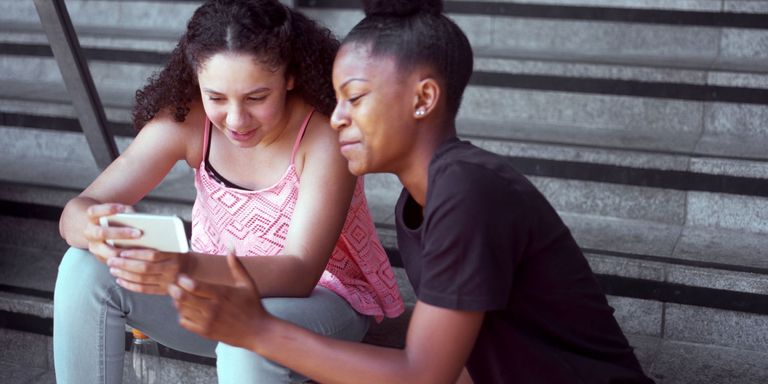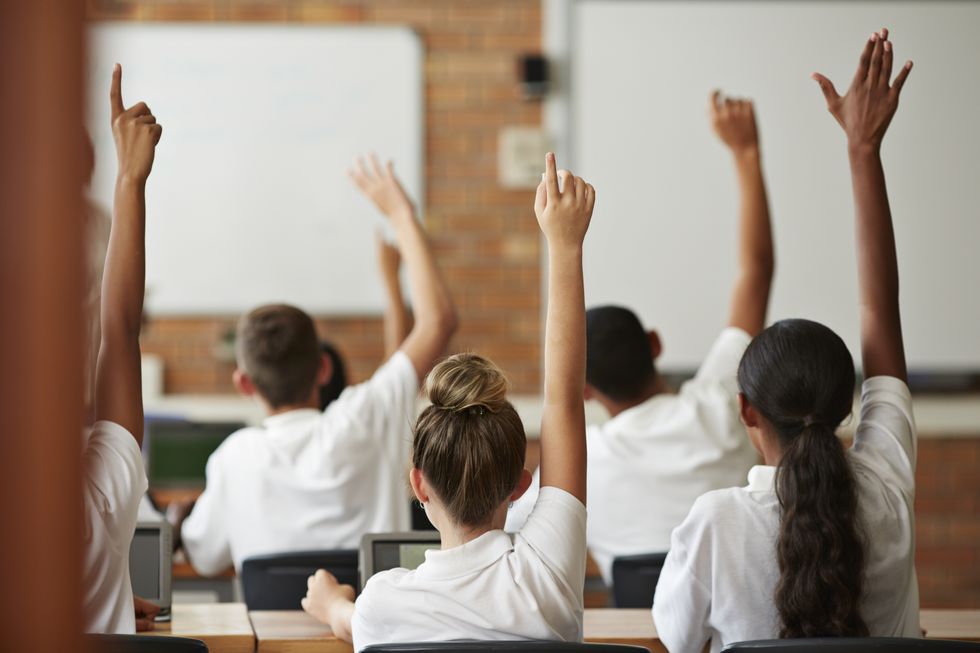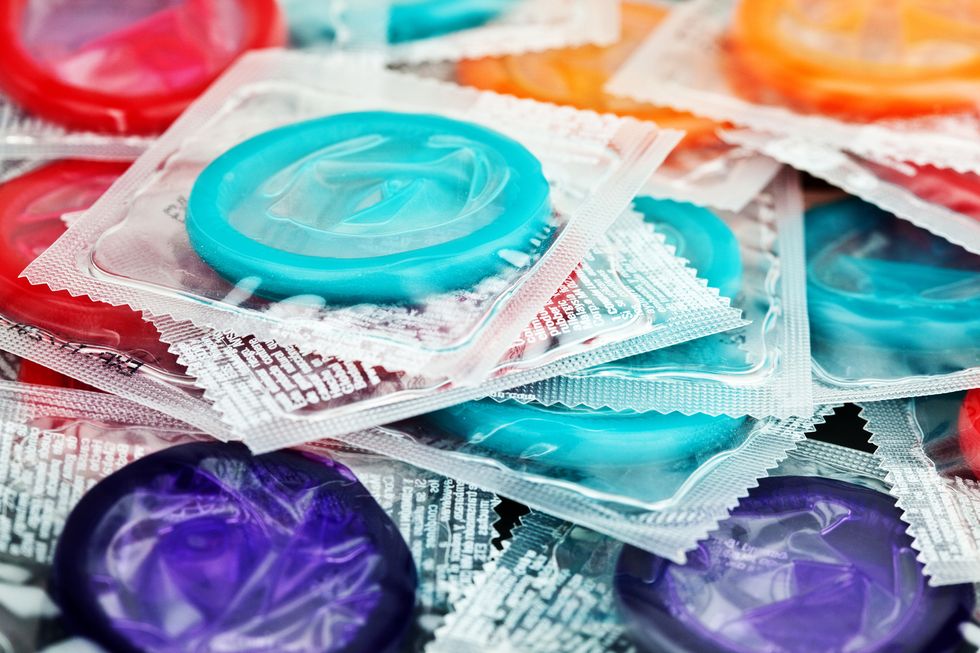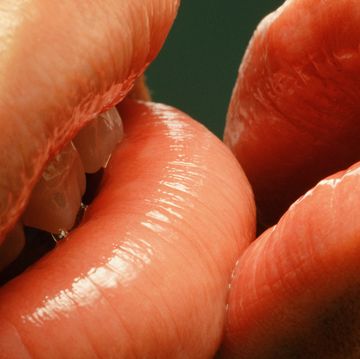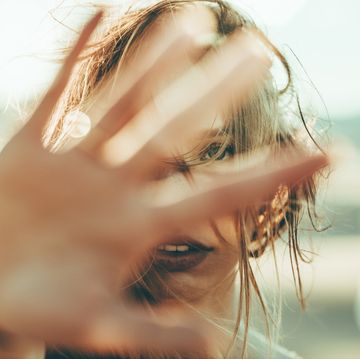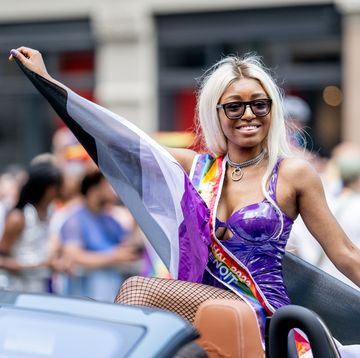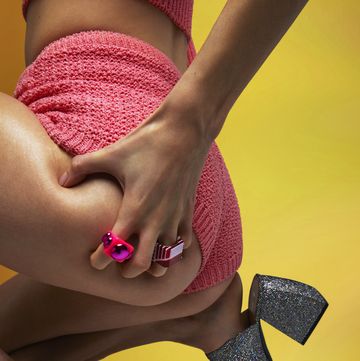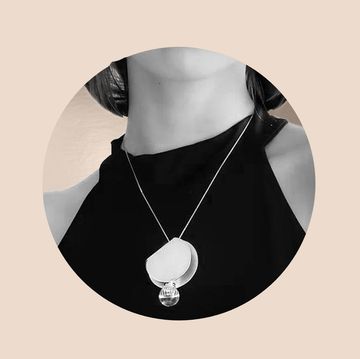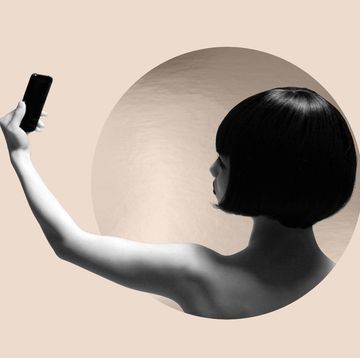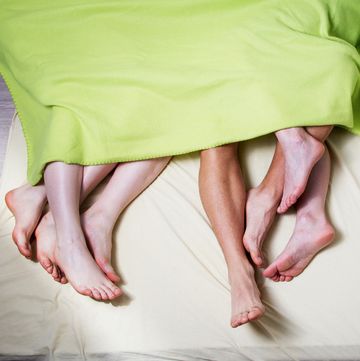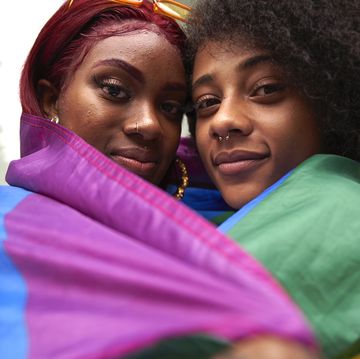From what I can remember of my secondary school sex-education (and remember, this is pre-smartphone), it featured a 20-year outdated video followed by a graphic slideshow of genitalia with varying degrees of sexually-transmitted infection, plus a chlamydia-infected baby's eye.
The result? I passed out in class.
Overall, there were a lot of unanswered questions and school isn't where I ended up learning about sex. I was lucky to have an incredible, rock-solid group of girlfriends who would talk openly, advise, support and laugh with each other when it came to figuring it all out.
My teenage years were confusingly awkward, and evidently squeamish, even without a smartphone. Now there is revenge porn, sexting and a whole heap of X-rated material at the fingertips of anyone with an internet connection.
And this is why it is more important than ever that schools and parents talk to their children about sex and, with that, porn.
The reality is that children are probably going to come across porn in some form whether or not you have parental controls set on your broadband. According to a BBC survey in 2014, the majority of young people (60%) were 14 years or younger when they first clapped eyes on some porn.
Parents can have all the safeguards in the world in their own home, but they can't control what goes on when kids, especially of secondary school age, are in the company of their friends. In the survey, 62% said they first came across porn when they were shown it unexpectedly by someone else.
Given these figures, it's highly likely that the first time many, many young people will see sexual intercourse, is in the form of pornography.
Meaning, there is a very real danger that a lot of children will esteem porn to be representative of real life sex. Which as we know, is far from the truth.
In many cases, pornography paints a ferociously damaging picture of what real life sex should be like, especially for women.
The Conservative government has tried to combat porn via the digital economy law, which was passed in April. The law is an attempt to restrict access to online pornography, particularly for people under 18. However, despite the government's intentions, the bill has been met with opposition from freedom of expression campaigners, as well as a general dismissal that, in reality, it is unlikely to stop young people accessing porn. Where there's a will, there's a way, after all.
One person perfectly aware of this reality is Sam Evans, a mother of three, and founder of the sex toy website Jo Divine.
She told ELLE: 'Children are curious, they will get around porn regulations and laws, they are media experts – we underestimate children, they want to learn. They want to know and want good advice as it will benefit them later on in life. The issue is not going away so we're going to have to talk about it.'
Earlier this year, the secretary of state for education Justine Greening announced it will be compulsory for all English schools to teach sex and relationship education. What exactly this updated curriculum will include has not yet been announced, although Greening said the previous curriculum 'failed to address risks to children which have grown in prevalence in recent years, including online pornography' so the updated one would 'address these issues'.
To ensure the government stick to their word, sexual health charity the FPA is devoting its annual sexual health week to porn in 2017, helping parents write letters to their children's schools to confirm that topics which can arise from online porn, including consent, communication, body image and self-esteem, are covered in these lessons.
Evans thinks this is great: 'We need to explain to kids that [adult actors] are being paid to act and a lot of the stuff portrayed in porn isn't really what's going on behind closed doors in most bedrooms up and down the country.'
Despite what some sections of the media might have you think, many parents feel the same. In a survey carried out by the FPA of more than 2,000 parents, almost three quarters (72%) believed both parents and schools should be talking to young people about subjects related to pornography including self-esteem, consent and body image.
The body image issue is obvious. All types of bodies enjoy sex, not just white women with flat, toned stomachs, huge boobs and hairless vaginas. It works the same way for men: They don't need to have abs of steel, huge guns and enlarged penises.
'I talked to my kids about porn in their early teens,' Evans says, her children are now 13, 15 and 17-years-old.
'[From porn] younger people can hear that all women orgasm from penetrative sex and that men can go for hours at a time. It's about dispelling the myths and explaining what real life sex is about: It's messy, noisy, fun, embarrassing.'
Another issue is that adult actors rarely wear condoms. While they may have routine compulsory testing in the industry, in the real world, the only way to safeguard yourself against STIs and STDs is by using condoms. According to the FPA's research, this is one of the most important lessons parents want for their teenagers when it comes to porn, with 88 per cent having either already discussed how porn does not show safe sex or saying it should be discussed at an appropriate age.
The porn industry is vast and it is wrong to tarnish all movies with the same brush. Diversity is improving, and there is now a wealth of LGBTQ porn as well as an emergence of self-proclaimed feminist porn directors who have focused on trying to empower women.
However, that doesn't mean that the wealth of porn available to quick access is not still overwhelmingly misogynistic, unrealistic and white.
Heterosexual porn is sometimes filmed only to show a man being pleasured, or a woman looking uncomfortable or being called offensive names. And, of course, behind the scenes, porn stars are acting in a room full of crew who can use safe words at any time, just another example of how porn isn't reflective of real life.
Founder of the Everyday Sexism Project Laura Bates often visits schools to talk about gender equality. From her experiences, Bates believes that as young people are already exposed to porn 'and what they see online can be scary, confusing, misogynistic and misleading', talking about it is vital.
'Much of the easily accessible, mainstream online porn presents sex as something misogynistic and often aggressive, that is done to women for male pleasure, and which frequently involves humiliating, mocking, hurting or even abusing women,' she told ELLE. 'Women are stereotyped, racially as well as sexually, and a very unrealistic body image is often presented as the norm.'
At one school Bates visited, she spoke to a 'terrified' 14-year-old girl who had watched a video on a boy's phone at school: 'After seeing the it, she said she hadn't realised that "when you have sex the woman is hurting and crying''.
'It seems obvious to me that having open conversations with young people about how online porn portrays sex in a certain light, about consent, and healthy, respectful sexual relationships can only help to mitigate some of the problems caused by some online porn by giving young people the awareness to realise that it isn't something they necessarily have to replicate,' Bates says.
In reality, it goes without saying that education around porn must be age-appropriate. Evans suggests towards the end of primary school before pupils head off to secondary school might be the right time.
'There's lots of scaremongering [around porn], which is never helpful,' secondary school teacher Alice Hoyle tells ELLE. 'Just saying you should never watch it, or it isn't real, isn't actually useful for many young people. Especially for LGBT+ kids, who might find it's the only place they can see their sexuality or identity reflected. We need to have a more nuanced approach, and think about the different reasons young people might look at porn.'
Hoyle also says porn education doesn't need to refer directly to porn itself, or actually show porn in schools. Early discussions could start at primary age through teaching about challenging gender stereotypes, healthy relationships and staying safe online.
'There shouldn't just be a one off "porn lesson", it needs to be a broader approach that helps young people critically evaluate what goes on in society.'

